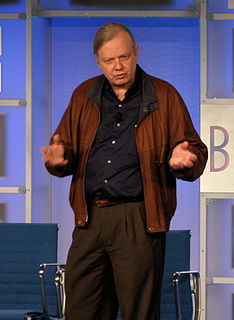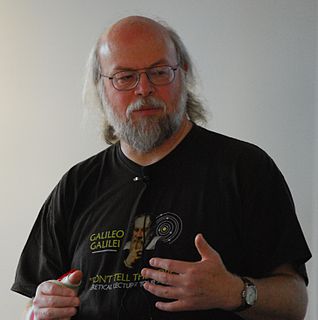A Quote by Bill Gates
Personal computing today is a rich ecosystem encompassing massive PC-based data centers, notebook and Tablet PCs, handheld devices, and smart cell phones. It has expanded from the desktop and the data center to wherever people need it - at their desks, in a meeting, on the road or even in the air.
Related Quotes
Tape with LTFS has several advantages over the other external storage devices it would typically be compared to. First, tape has been designed from Day 1 to be an offline device and to sit on a shelf. An LTFS-formatted LTO-6 tape can store 2.5 TB of uncompressed data and almost 6 TB with compression. That means many data centers could fit their entire data set into a small FedEx box. With LTFS the sending and receiving data centers no longer need to be running the same application to access the data on the tape.
The power efficiency of computing has improved by a factor of a billion from the ENIAC computer of the 1950s to today's handheld devices. Fundamental physics indicates that it should be possible to compute even another billion times more efficiently. That would put the power of all of today's present computers in the palm of your hand. That says to me that the age of computing really hasn't even begun yet.
As we move into an era in which personal devices are seen as proxies for public needs, we run the risk that already-existing inequities will be further entrenched. Thus, with every big data set, we need to ask which people are excluded. Which places are less visible? What happens if you live in the shadow of big data sets?
Cloud computing, smartphones, social media platforms, and Internet of Things devices have already transformed how we communicate, work, shop, and socialize. These technologies gather unprecedented data streams leading to formidable challenges around privacy, profiling, manipulation, and personal safety.




































